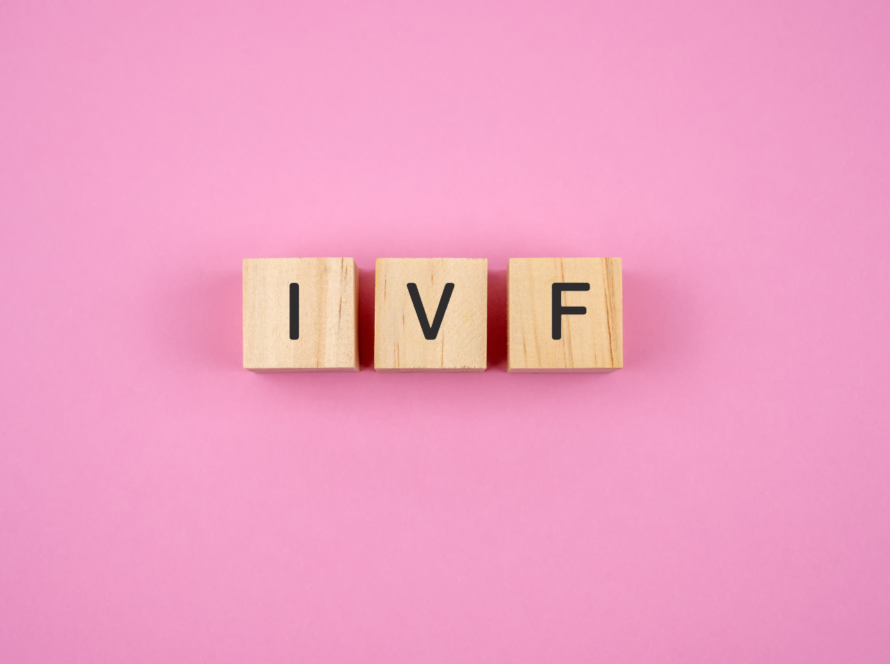Preparing your body for IVF (In Vitro Fertilization) is one of the most crucial steps to improve your chances of a successful pregnancy. IVF is a complex process that requires your body to be in its best possible condition to ensure healthy egg production, optimal embryo implantation, and a successful pregnancy.
At Mithran Fertility Center, Chidambaram, we emphasize the importance of preparing your body for IVF with personalized plans, lifestyle adjustments, and fertility-enhancing techniques. This comprehensive guide will walk you through the best ways to prepare your body for IVF success, helping you take charge of your fertility journey.
1.Why Is It Important to Prepare for IVF?
The success of an IVF cycle depends on multiple factors, and proper preparation can significantly improve the outcome.
✅ Higher Egg Quality: A healthy diet and supplements enhance egg development.
✅ Optimal Uterine Environment: A receptive uterine lining increases implantation chances.
✅ Reduced Stress Levels: Managing emotional health boosts hormonal balance.
✅ Better Embryo Development: Healthy lifestyle changes positively impact embryo quality.
Fact: Studies have shown that women who prepare their bodies for IVF through lifestyle and dietary changes experience higher success rates compared to those who do not.
2.When Should You Start Preparing for IVF?
It’s ideal to start preparing your body at least 3-6 months before your IVF cycle. Since it takes about 90 days for eggs to mature, lifestyle changes and supplements need time to show their full impact.

3.Step-by-Step Guide to Prepare Your Body for IVF Success
Step 1: Eat a Fertility-Boosting Diet
A balanced, nutrient-rich diet is essential for improving egg quality and supporting a healthy uterine lining.
Fertility-Enhancing Foods:
Leafy Greens: Spinach, kale, and fenugreek are rich in folate and antioxidants.
Berries: Blueberries, raspberries, and strawberries provide antioxidants that protect eggs.
Avocados: High in healthy fats that regulate hormones and support embryo development.
Nuts and Seeds: Almonds, walnuts, chia seeds, and flaxseeds supply omega-3 fatty acids.
Whole Grains: Brown rice, quinoa, and oats stabilize insulin levels and promote fertility.
Foods to Avoid:
Processed foods high in sugar and trans fats.
Excessive caffeine and alcohol.
Refined carbohydrates that spike blood sugar.
Tip: Adopt a Mediterranean-style diet that is rich in antioxidants, healthy fats, and plant-based foods for optimal fertility.
Step 2: Maintain a Healthy Body Weight
Being underweight or overweight can negatively impact IVF success by disrupting hormone balance and affecting egg quality.
Ideal BMI for IVF:
BMI Range: 18.5 to 24.9 is considered ideal for fertility.
Why It Matters: A healthy BMI improves the chances of implantation and reduces pregnancy complications.
Tip: Engage in moderate physical activity, such as brisk walking, yoga, or swimming, to maintain a healthy weight.
Step 3: Take Fertility-Enhancing Supplements
Supplements can help support egg quality, improve uterine health, and balance hormones, increasing IVF success rates.
Recommended Supplements:
Folic Acid: Essential for DNA synthesis and embryo development.
Coenzyme Q10 (CoQ10): Enhances mitochondrial function and boosts egg quality.
Vitamin D: Supports hormone regulation and immune function.
Omega-3 Fatty Acids: Reduce inflammation and improve reproductive health.
Zinc and Selenium: Protects eggs and enhances fertility.
Tip: Start taking supplements at least 3 months before IVF and consult with your fertility specialist for appropriate dosage recommendations.
Step 4: Reduce Stress and Practice Relaxation Techniques
Chronic stress releases cortisol, which can interfere with reproductive hormones and disrupt the IVF process. Reducing stress helps maintain hormonal balance and improves the chances of a successful pregnancy.
Stress-Relief Techniques:
Yoga and Meditation: Improves blood flow to reproductive organs and reduces anxiety.
Breathing Exercises: Lowers cortisol levels and promotes relaxation.
Counseling or Support Groups: Provides emotional support during the IVF journey.
Tip: Incorporate 20-30 minutes of stress-relief practices into your daily routine to promote overall well-being.
Step 5: Limit Exposure to Toxins and Environmental Pollutants
Toxins and environmental pollutants can harm egg quality and disrupt hormone balance. Reducing exposure to harmful chemicals can enhance fertility outcomes.
Ways to Minimize Toxin Exposure:
Avoid Plastics: Use glass or stainless steel containers for food storage.
Use Natural Cleaners: Choose chemical-free household cleaning products.
Limit Pesticide Exposure: Wash fruits and vegetables thoroughly or opt for organic produce.
Tip: Avoid smoking and alcohol, as they increase oxidative stress and affect reproductive health.
Step 6: Improve Sleep Quality and Hormonal Balance
Getting 7-8 hours of quality sleep each night is essential for maintaining hormonal balance and improving fertility outcomes.
Why Sleep is Important:
Regulates Hormones: Melatonin and cortisol levels influence ovarian function.
Promotes Cell Repair: Restorative sleep protects eggs from oxidative damage.
Tip: Create a consistent sleep schedule and avoid screen time before bed to promote deep, restful sleep.
Step 7: Prepare Your Uterus for Implantation
A healthy, receptive uterus is essential for successful embryo implantation.
Ways to Improve Uterine Lining:
Hydrate Well: Drink plenty of water to improve blood flow to the uterus.
Consider Acupuncture: Enhances blood circulation and promotes uterine receptivity.
Take Vitamin E: Supports endometrial thickness and improves implantation.
Tip: Discuss with your fertility specialist about endometrial receptivity analysis (ERA) to identify the best time for embryo transfer.
FAQs
Ideally, you should start preparing your body 3-6 months before IVF to allow enough time for lifestyle changes and supplements to take effect.
Foods rich in antioxidants, healthy fats, and vitamins—such as leafy greens, berries, avocados, and nuts—support egg quality and overall fertility.
Moderate exercise improves blood flow and hormone balance, but avoid high-intensity workouts, which may disrupt ovulation.
Yes, chronic stress can disrupt hormonal balance and negatively affect egg quality and implantation. Managing stress through relaxation techniques can improve IVF success.
Yes, fertility supplements such as CoQ10, Vitamin D, and Omega-3 fatty acids can significantly improve egg quality and increase IVF success rates.
Conclusion
Preparing your body for IVF is a powerful step that increases the chances of success and ensures a healthier pregnancy. By adopting a fertility-friendly lifestyle, managing stress, maintaining a healthy weight, and taking the right supplements, you can optimize your reproductive health and enhance IVF outcomes.
At Mithran Fertility Center, Chidambaram, we are committed to providing personalized care and guidance to help you achieve the best possible results in your fertility journey.




